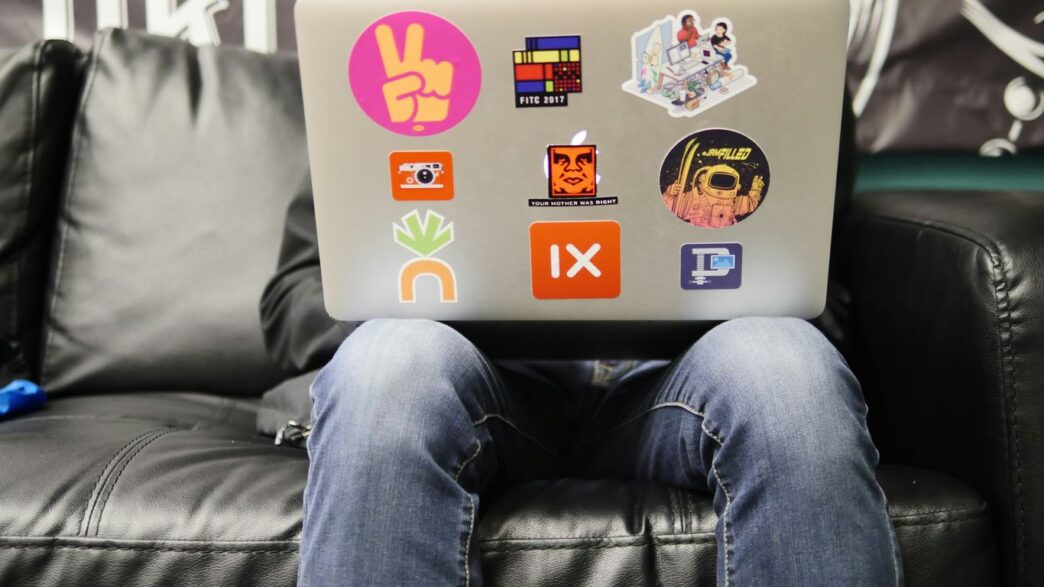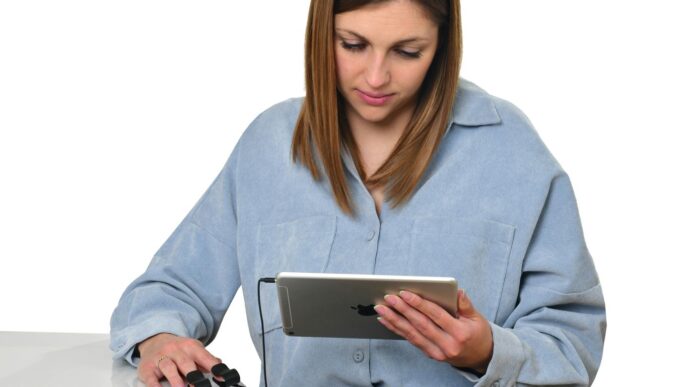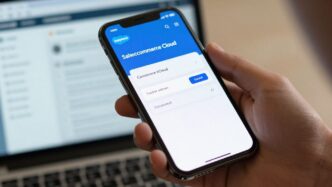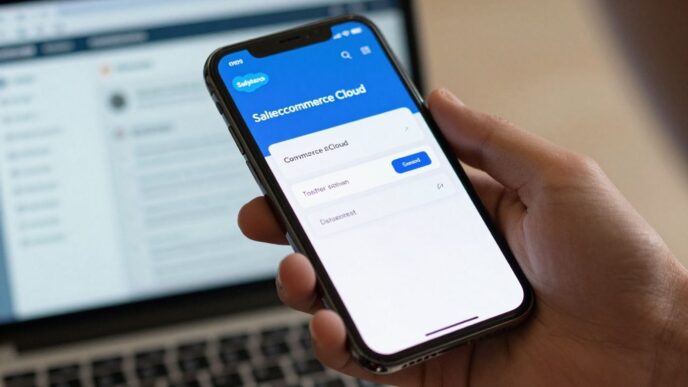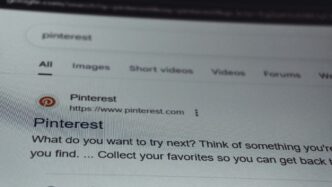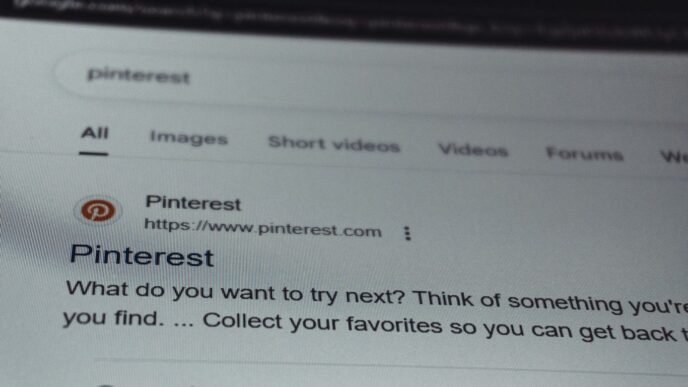Thinking about how to use free internet from a VPN? It’s not as complicated as it sounds, honestly. Lots of people are looking for ways to get online more securely or access stuff that’s usually blocked. This guide is going to break down how you can do just that, using a VPN. We’ll cover what you need to know to get started, how to set it up on your devices, and some cool things you can do with it. No need to be a tech expert, we’ll keep it simple.
Key Takeaways
- A VPN encrypts your internet traffic, making your online activity private and secure, especially on public Wi-Fi.
- VPNs can help you access content that’s usually restricted in your region by making it appear like you’re browsing from a different country.
- Using a VPN can prevent your internet provider from slowing down your connection when you’re doing data-heavy activities like streaming or gaming.
- While free VPNs exist, paid services generally offer better speeds, more server choices, and stronger privacy policies.
- Setting up a VPN is usually straightforward, involving choosing a service, downloading an app, logging in, and connecting to a server.
Understanding How to Use Free Internet From VPN
So, you’re looking to get online without shelling out cash, and you’ve heard a VPN might be the ticket. That’s a smart move. A Virtual Private Network, or VPN, is basically a tool that creates a secure, encrypted tunnel for your internet traffic. Think of it like a private road for your data, keeping it hidden from prying eyes. This is especially handy when you’re using public Wi-Fi, like at a coffee shop or airport, where your connection is usually wide open for anyone to peek at. Using a VPN can make your online activities much safer, even when you’re trying to access the internet for free.
What a VPN Entails for Internet Access
When you connect to the internet through a VPN, your device first connects to a VPN server. All your internet data then travels through an encrypted pathway to that server. From there, it goes out to the website or service you’re trying to reach. The website sees the IP address of the VPN server, not your actual IP address, which helps mask your location and identity. This process is pretty standard, whether you’re using a free VPN service or a paid one. The encryption is what keeps your information private, stopping your Internet Service Provider (ISP) or anyone else on the network from seeing what you’re doing online. It’s like sending a letter in a locked box instead of an open postcard.
Benefits of Using a VPN for Internet
There are a few good reasons why people turn to VPNs for their internet needs:
- Privacy Boost: Your online actions are shielded from your ISP and other potential observers. This means they can’t easily track which websites you visit or what you download.
- Security on Public Wi-Fi: Public networks are notoriously insecure. A VPN encrypts your connection, making it much harder for hackers to intercept your data when you’re connected to Wi-Fi at a cafe, hotel, or airport.
- Accessing Content: Sometimes, content is blocked based on your location. A VPN can make it appear like you’re browsing from a different country, potentially giving you access to more websites or services.
- Avoiding Throttling: Some ISPs might slow down your connection for certain activities, like streaming or gaming. Since a VPN hides your activity, your ISP can’t specifically target and slow down those types of traffic.
Free VPNs Versus Paid VPNs
When you’re looking for free internet access via a VPN, you’ll often run into two main types: genuinely free VPN services and paid VPNs that offer free trials or limited free plans. It’s important to know the difference.
| Type of VPN | Pros | Cons |
|---|---|---|
| Truly Free VPNs | No cost to use; accessible for basic browsing. | Often have data caps, slower speeds, fewer server options, and may show ads or collect user data. |
| Paid VPNs (Free Trials/Limited Plans) | Better speeds, more features, stronger security, no ads, and often unlimited data. | Requires payment after trial period; free plans can be very restricted. |
Many
Setting Up Your VPN for Internet Access

Alright, so you’ve decided to get yourself a VPN. That’s a smart move, especially if you’re looking to beef up your online privacy or access stuff that’s usually blocked. But how do you actually get one up and running? It’s not as complicated as it might sound, honestly. We’ll walk through the main steps to get you connected.
Choosing a Reliable VPN Service
This is probably the most important step. Not all VPNs are created equal, and picking the wrong one can lead to more headaches than it’s worth. You want a service that’s known for being solid and not messing with your privacy. Look for reviews from people who actually know what they’re talking about. Things to keep an eye on include how strong their security is – think encryption standards and whether they have a kill switch (that’s a feature that cuts your internet if the VPN connection drops, which is pretty handy). Also, consider how many devices you can use at once and if they have servers in the locations you might need. While some free VPNs exist, they often come with limits on data or speed, and sometimes they aren’t great for privacy. Most decent VPNs will cost you a few bucks a month, especially if you sign up for a longer plan. It’s usually a good idea to check out comparisons of the best VPNs out there before you commit.
Downloading and Installing the VPN Application
Once you’ve picked a VPN provider, the next step is getting their software onto your device. Most reputable VPN services have their own apps for pretty much every major operating system and device. You’ll usually download this app directly from the VPN provider’s official website or from your device’s app store. The installation process is generally straightforward, much like installing any other program. It shouldn’t take too long, and you typically don’t need any special tech skills to get it done. For Windows users, you can often find the setup within the Network and Internet settings, where you can add a VPN connection. Setting up a VPN on Windows is a common task, and most guides will point you to the official app first.
Logging In and Initial Configuration
After the app is installed, you’ll need to open it up and log in. This is where you’ll use the username and password you created when you signed up for the service. Some VPNs offer different ways to log in, like using your email, a code sent to another device, or even your Google or Apple account. Once you’re logged in, the app will usually present you with a few options. Often, there’s a ‘Quick Connect’ button that will automatically connect you to the fastest or nearest server. If you want to connect to a specific country, you’ll typically find a list or map of server locations to choose from. For most people, just hitting ‘Quick Connect’ is enough to get started. You might also want to look into settings like a kill switch or split tunneling if those features are important to you, but for basic use, the default settings are usually fine.
Maximizing Your VPN Connection
So, you’ve got your VPN up and running, which is great. But are you really getting the most out of it? It’s not just about turning it on and forgetting about it. There are a few things you can do to make sure your connection is as fast and secure as possible. Think of it like tuning up your car – a little effort goes a long way.
Connecting to Optimal VPN Servers
Picking the right server is more important than you might think. It’s not always about picking the server closest to you, though that’s often a good starting point for speed. If you’re trying to access content from a specific country, you’ll obviously need to connect to a server in that country. But sometimes, the server that’s geographically closest might be overloaded with users, leading to slower speeds. It’s worth experimenting a bit.
Here’s a quick rundown of what to consider:
- Proximity: Generally, servers closer to your physical location offer better speeds because the data has less distance to travel.
- Server Load: Many VPN apps show you the current load on their servers. A server with a lower load is usually a better bet for speed.
- Server Type: Some VPNs offer specialized servers, like those optimized for streaming or torrenting. If you have a specific task in mind, look for these.
- Experimentation: Don’t be afraid to try a few different servers in your desired region. You might be surprised which one performs best.
Leveraging Advanced Security Features
Most VPNs offer more than just basic encryption. Digging into the settings can reveal some powerful tools to keep you safer online. These features can make a big difference in your privacy and security.
- Kill Switch: This is a must-have. If your VPN connection suddenly drops, the kill switch automatically cuts off your internet access. This prevents your real IP address and unencrypted data from being exposed, even for a moment.
- Split Tunneling: This feature lets you choose which apps or websites use the VPN and which ones connect directly to the internet. For example, you might want your banking app to use your regular connection for stability, while your streaming app uses the VPN to access geo-blocked content.
- DNS Leak Protection: Sometimes, even with a VPN, your device might still send out DNS requests through your regular internet connection, revealing your activity. Good VPNs have built-in protection against this.
- Double VPN (Multi-Hop): For an extra layer of security, some VPNs let you route your traffic through two different VPN servers. This makes it much harder to trace your online activity back to you, though it can sometimes slow down your connection.
Troubleshooting Common Connection Issues
Even the best VPNs can run into problems now and then. Don’t panic if you experience a slow connection or can’t connect at all. Usually, it’s something you can fix pretty easily.
Here are some common issues and how to tackle them:
- Slow Speeds: As mentioned, try switching to a different server. Also, check your base internet speed without the VPN to see if the problem is with your ISP. Restarting your VPN app and your device can also help.
- Cannot Connect: Make sure you’re using the correct login details. Try a different VPN protocol in your settings (like OpenVPN UDP vs. TCP, or WireGuard). Sometimes, your firewall or antivirus software might be blocking the VPN connection; try temporarily disabling them to test.
- Website/App Not Working: If a specific website or service isn’t working with your VPN, it might be because the VPN’s IP address has been blocked. Try connecting to a different server. For streaming services, ensure your VPN specifically supports that platform, as many have gotten wise to VPN usage.
- Connection Drops: This could be due to a weak internet connection or an overloaded VPN server. Ensure your kill switch is enabled so your data remains protected if this happens.
Exploring VPN Capabilities Beyond Basic Browsing
So, you’ve got your VPN set up and you’re browsing away. That’s great, but honestly, you’re probably only scratching the surface of what these things can do. A VPN is way more than just a privacy shield; it’s like a master key for the internet. Let’s talk about how you can really get the most out of it.
Unlocking Geo-Restricted Content
Ever tried to watch a show or access a website only to be told it’s not available in your region? It’s super frustrating. VPNs let you hop over these digital borders. By connecting to a server in a different country, you can make it look like you’re browsing from there. This means you can access streaming libraries from other countries, or even websites that are blocked in your own location. It really opens up a ton of content you might have been missing out on. For example, you could connect to a server in Canada and see what the Canadian Netflix library has to offer, which is often different from the US version. It’s a neat trick for expanding your entertainment options.
Preventing Bandwidth Throttling
Have you ever noticed your internet speed suddenly tank when you’re streaming a movie or downloading a big file? Your Internet Service Provider (ISP) might be doing something called bandwidth throttling. Basically, they slow down your connection for certain activities to manage network traffic. Because a VPN encrypts your data, your ISP can’t see what you’re doing online. This means they can’t specifically target your streaming or downloading activities for slowdowns. While a VPN itself can slightly reduce speeds due to encryption, it often prevents the more drastic, targeted throttling that ISPs impose. It’s a good way to keep your connection speeds more consistent, especially when you need them most. Some services, like ExpressVPN, are known for their speed, which helps minimize any noticeable slowdown.
Enhancing Online Anonymity
We touched on privacy earlier, but let’s go a bit deeper. When you use the internet without a VPN, your ISP can see everything you do – every website you visit, every search you make. Advertisers also track you using cookies and other methods to build profiles about your habits. A VPN encrypts your traffic, making it unreadable to your ISP. It also masks your real IP address, replacing it with the IP address of the VPN server. This makes it much harder for websites and advertisers to track your online movements and link them back to you. It’s like putting on a digital disguise. Some VPNs even offer advanced features like:
- Rotating IP Addresses: This feature changes your IP address periodically without disconnecting you, making your activity even more difficult to trace.
- Multi-Hop Connections: This routes your traffic through two different VPN servers, adding an extra layer of encryption and anonymity.
- Kill Switch: If your VPN connection drops unexpectedly, this feature automatically cuts off your internet access, preventing any accidental data leaks.
Using VPNs Across Different Devices
So, you’ve got your VPN all set up and ready to go on your main computer. That’s great! But what about your phone, your tablet, or maybe even your smart TV? The good news is that most VPN services are designed to work on a bunch of different devices. It’s not usually a huge hassle to get them running everywhere you need them.
VPN Setup on Desktop Operating Systems
Getting a VPN onto your Windows or macOS computer is pretty straightforward these days. Most VPN providers have dedicated apps for both. You’ll typically download an installer file from their website, run it, and follow the on-screen prompts. It’s usually just a few clicks. Once installed, you open the app, log in with your account details, and then you can pick a server to connect to. Some apps have a ‘Quick Connect’ button that just finds the best server for you automatically, which is handy if you’re in a hurry.
VPN Setup on Mobile Devices
Setting up a VPN on your smartphone or tablet, whether it’s an iPhone, iPad, or an Android device, is very similar to the desktop process. You’ll head over to your device’s app store (like the Apple App Store or Google Play Store), search for your VPN provider, and download their app. After installation, you just open it up, sign in with your username and password, and connect. Sometimes, your phone will ask for permission to set up a VPN connection – just tap ‘Allow’ or ‘OK’ to proceed. It’s really that simple.
VPN Browser Extensions Explained
Beyond full device apps, many VPN services also offer browser extensions for Chrome, Firefox, and Edge. These are a bit different. Instead of protecting all your internet traffic, they usually only protect the traffic coming from that specific browser. They’re super lightweight and quick to install. You just add the extension to your browser, log in, and you can connect to a server right from your browser’s toolbar. This can be a good option if you only need VPN protection for your web browsing activities and not for other apps on your computer.
Wrapping Things Up
So, there you have it. Using a VPN to get free internet access, or just to make your current connection safer and more open, is pretty straightforward these days. It’s not some super technical thing only hackers can do anymore. Whether you’re trying to stream something from another country, avoid your internet provider slowing you down, or just keep your browsing private when you’re out and about, a VPN can really help. Remember, while free options exist, they often come with limits. Paid services, or even just using free trials from good companies, usually give you a much better, faster, and more secure experience. Give it a try – you might be surprised how much easier and safer the internet can be.
Frequently Asked Questions
Can I really get free internet using a VPN?
A VPN doesn’t actually give you free internet access. Instead, it helps you use the internet you already have more safely and privately. Think of it like a secret tunnel for your online activity. Some VPNs offer unlimited data, which means you won’t hit data limits as quickly, making your existing connection feel more ‘free’ for browsing and streaming.
Are free VPNs safe to use?
While some free VPNs are okay for basic privacy, many can be risky. They might show you lots of ads, sell your data, or not protect you very well. It’s often better to use a paid VPN or a free version from a trusted company that offers limited features but good security. Always do your research before picking a free VPN.
What’s the difference between a free VPN and a paid VPN?
Paid VPNs usually offer much better speed, more server locations to choose from, stronger security, and no data limits. Free VPNs often have slower speeds, fewer servers, might show ads, and sometimes have data caps. If you need to stream a lot or want the best protection, a paid VPN is generally the way to go.
How does a VPN protect my privacy online?
A VPN hides your online activity by sending your internet traffic through a secure, encrypted tunnel. This makes it really hard for anyone, including your internet provider, to see what websites you visit or what you do online. It also masks your real location by making it look like you’re browsing from where the VPN server is.
Can I use a VPN to watch shows from other countries?
Yes, you can! Streaming services often have different shows or movies depending on the country. By connecting to a VPN server in another country, you can make it seem like you’re there, letting you access that country’s content library. However, streaming services sometimes try to block VPNs, so you’ll need a good VPN for this to work reliably.
Will using a VPN slow down my internet speed?
It’s possible. Because your internet traffic is being sent through an extra step (the VPN server and encryption), it can sometimes be a little slower than your normal connection. However, good VPNs are designed to minimize this slowdown, and sometimes they can even help if your internet provider is intentionally slowing down certain activities, like streaming.


